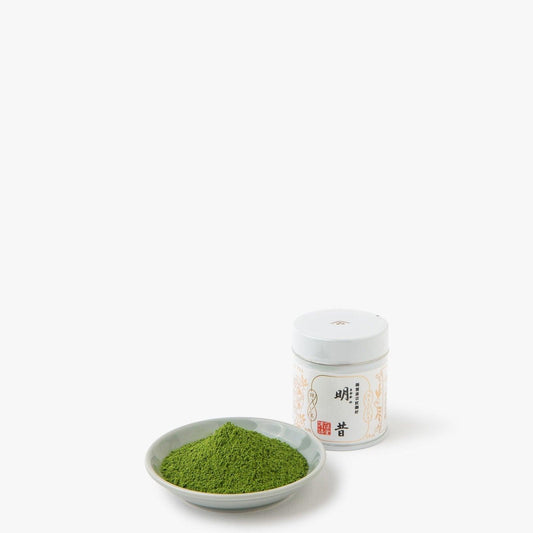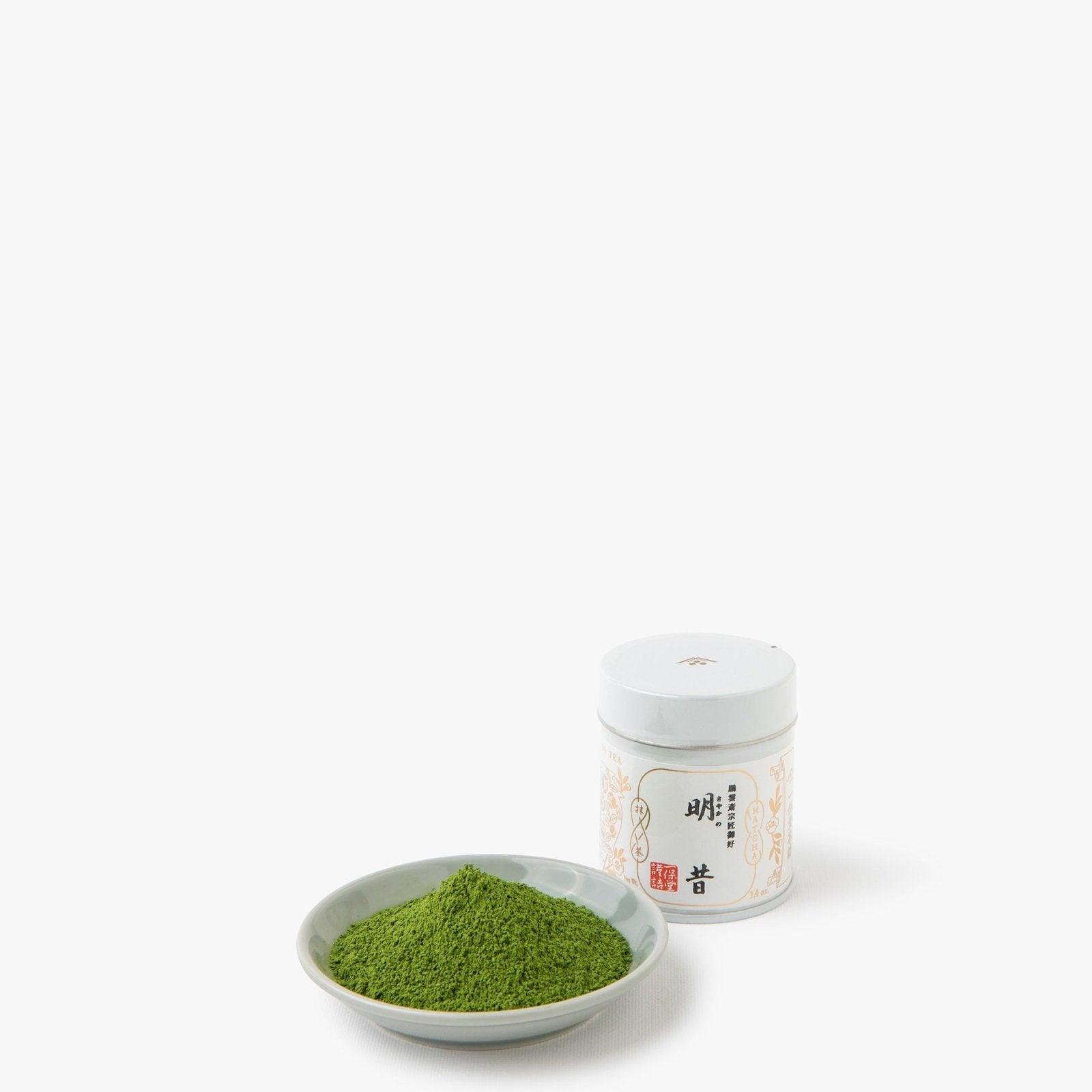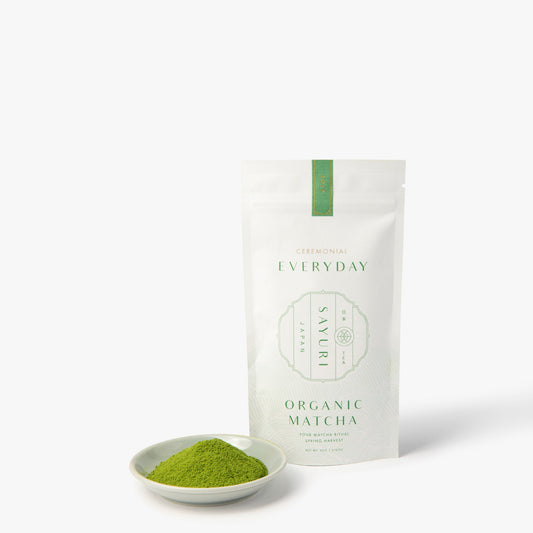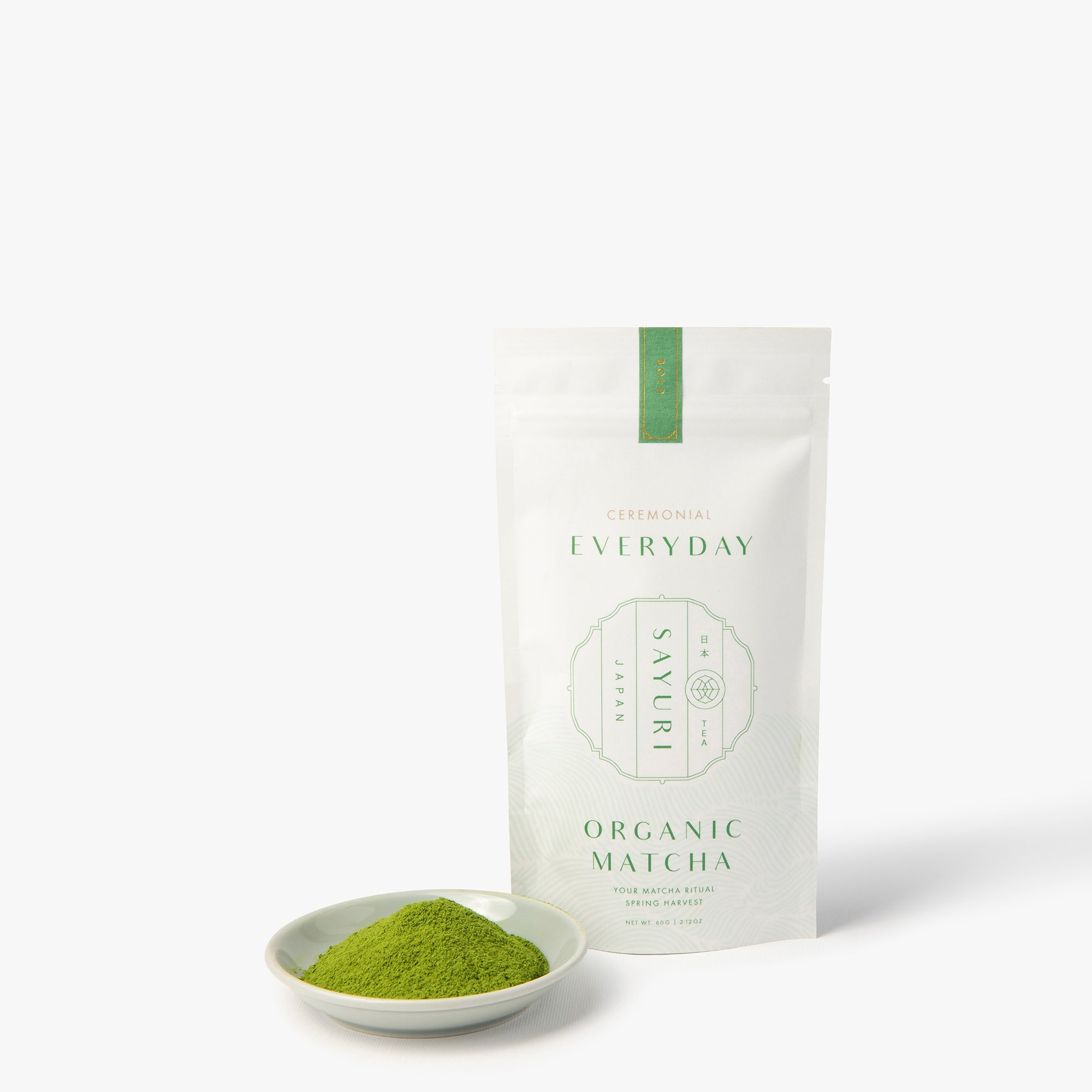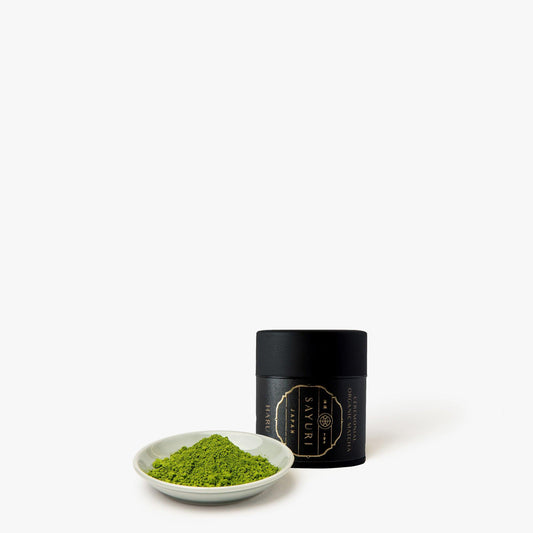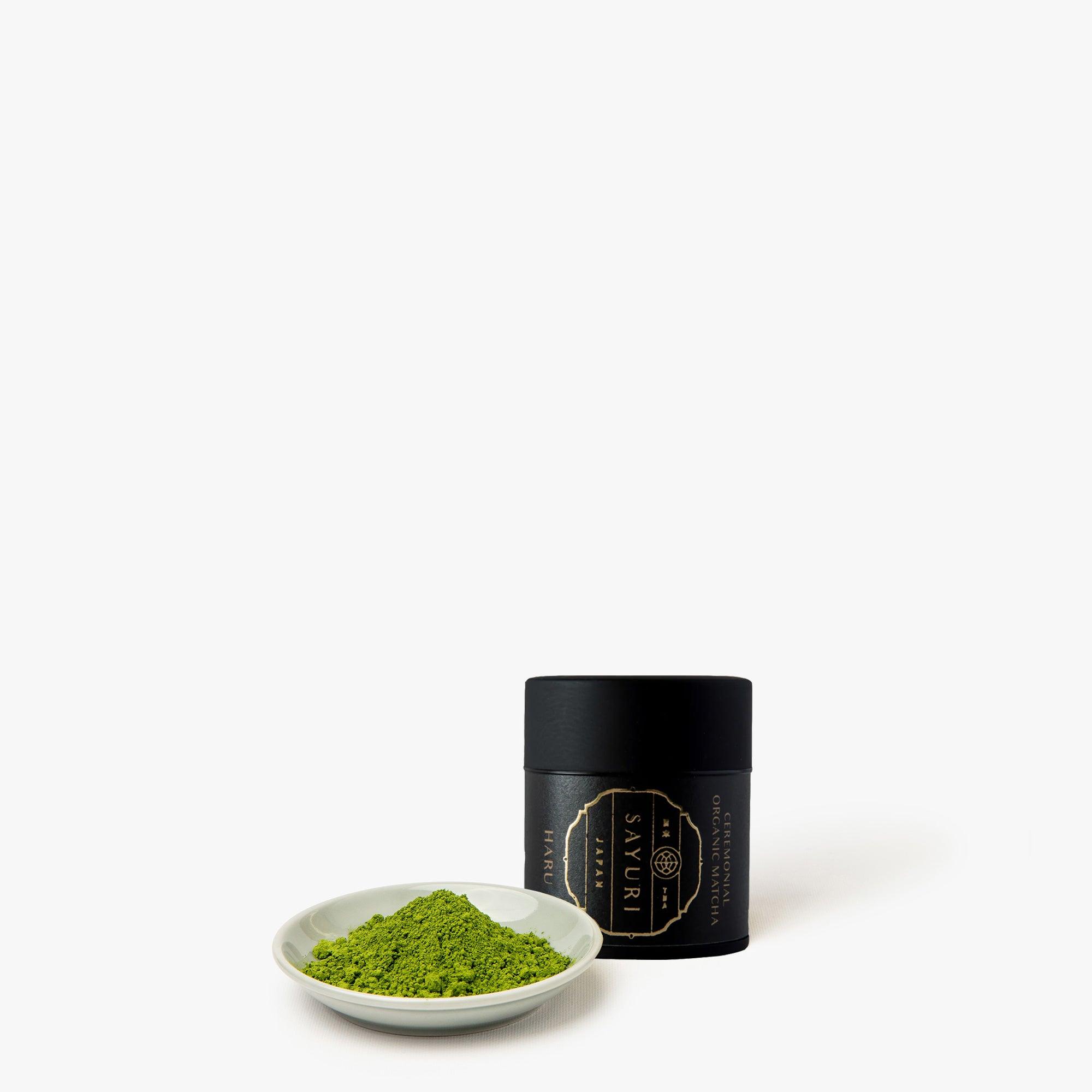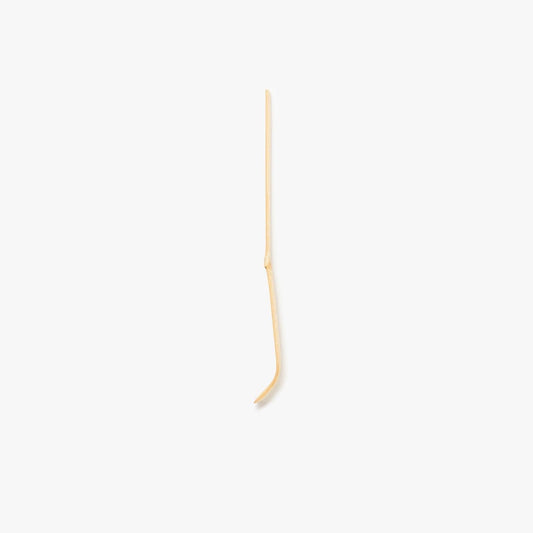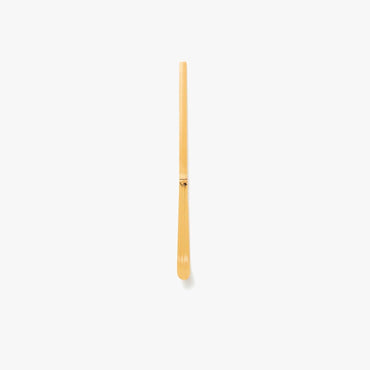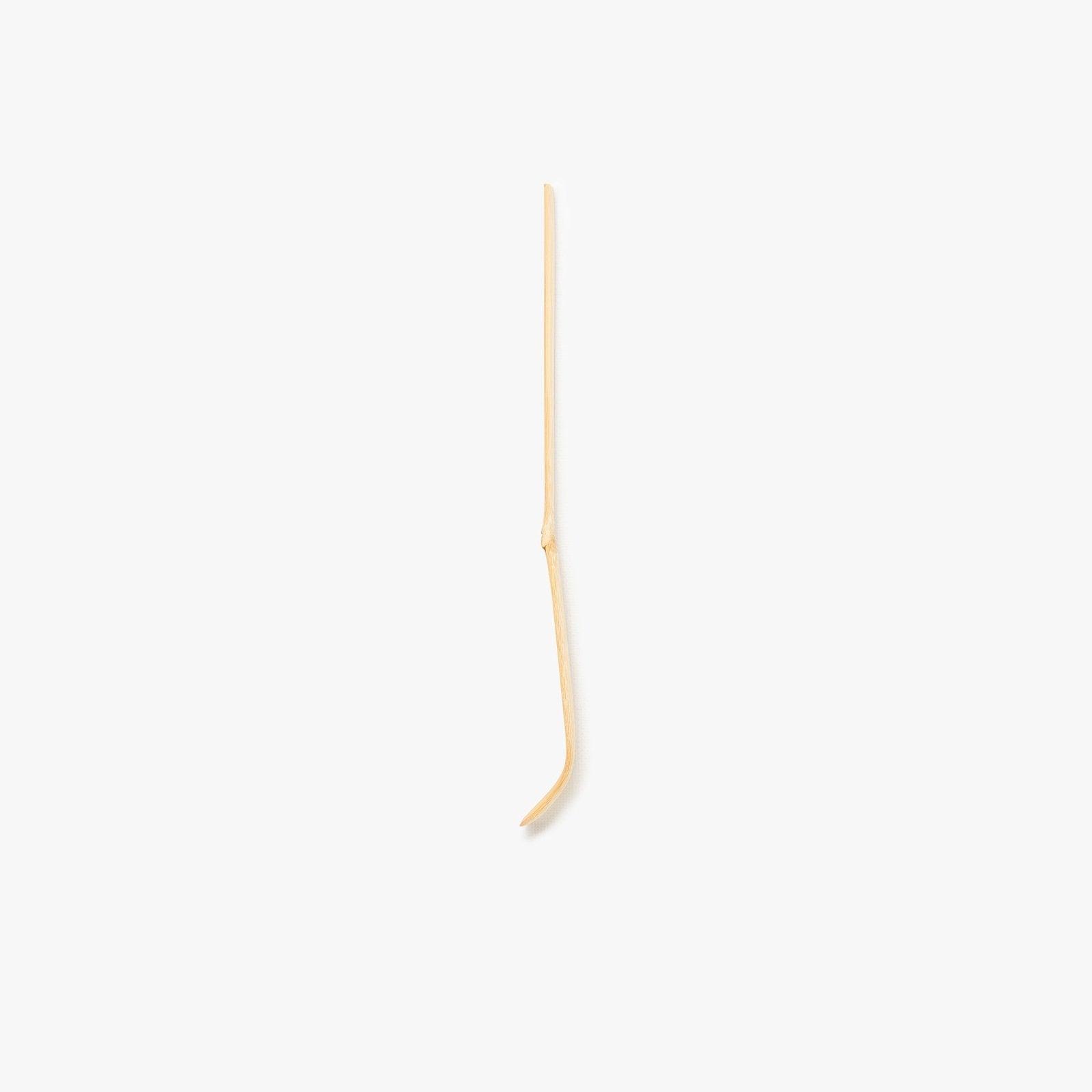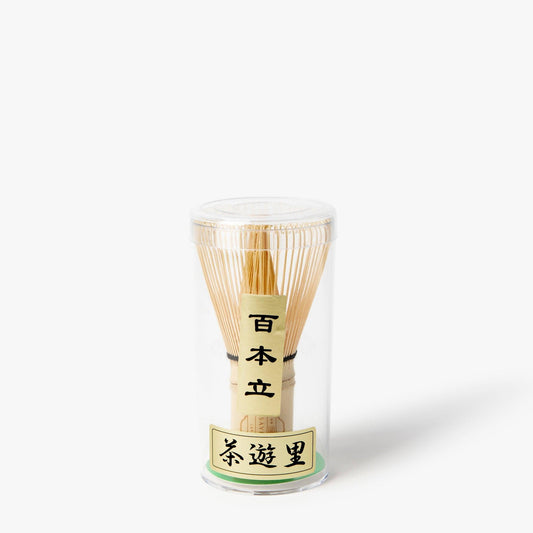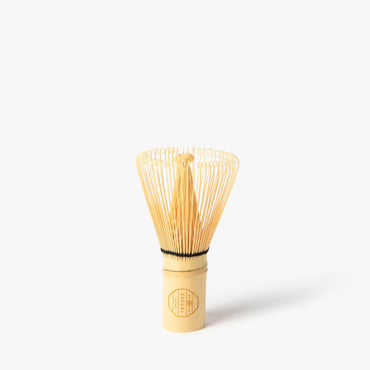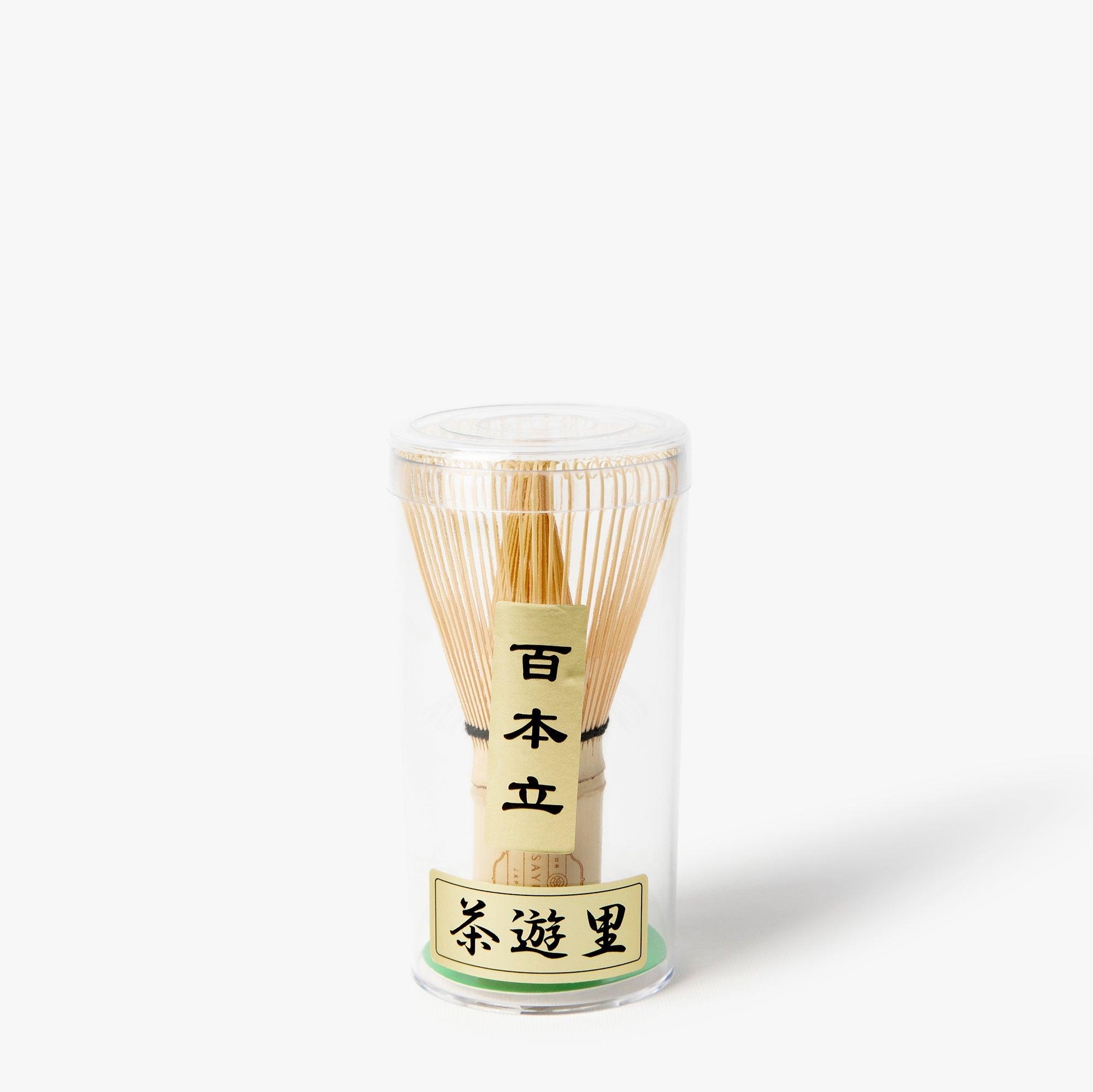Collection: Japanese matcha tea
Matcha is a finely ground green tea, crushed with the stone wheel. It is partially sunny during its culture and then shaded before harvest. Traditionally, it is used in Japan for the tea ceremony, a ritual linked to Zen Buddhism. Today, it is very popular and appreciated for its vegetable flavor, its deep Umami taste and for its important rate of antioxidants and nutrients. It is prepared with water heated to 70 ° and a chasen (bamboo whip).

-
Uji matcha tea ⋅ yamashiro ⋅ 40g
A matcha with herbaceous taste with notes of bitterness, ideal for various uses. It is harvested in the UJI region, near Kyoto, a world recognized for...
Usual price 12.50 €Promotional price 12.50 € Usual priceUnit price / byClassic Matcha tea Uji Sakura by Kyoto ⋅ Yamamasa Koyamaen ⋅ 30g
This exceptional matcha, harvested and prepared according to artisanal methods in Uji, near Kyoto, embodies the renown of this region for the unequaled quality of his...
Usual price 13.50 €Promotional price 13.50 € Usual priceUnit price 450.00 € / by kgFukuoka matcha granules for latte ⋅ nishifuku seicha ⋅ 200g
This special Matcha latte mixture is made up of matcha mixed with icing sugar. Rich in theine, it can also serve as an alternative to sugar...
Usual price 7.90 €Promotional price 7.90 € Usual priceUnit price 39.50 € / by kgClassical matcha tea Kedi from Kyoto ⋅ Yamamasa Koyamaen ⋅ 100g
This high -quality matcha is harvested according to craft methods in the UJI region, near Kyoto, a world recognized for the production of exceptional matcha. UJI...
Usual price 19.00 €Promotional price 19.00 € Usual priceUnit price 190.00 € / by kgClassical matcha tea ⋅ aoi seicha ⋅ 80g
Made from higher quality tea leaves, organic cultivated in the tea fields in the UJI region, in Japan. Its taste is herbaceous and slightly bitter. Its...
Usual price 22.00 €Promotional price 22.00 € Usual priceUnit price 275.00 € / by kgCooking matcha tea ⋅ aoi seicha ⋅ 30g
Made from higher quality tea leaves, organic cultivated in the tea fields in the UJI region, in Japan. Its taste is herbaceous and slightly bitter. Its...
Usual price 6.50 €Promotional price 6.50 € Usual priceUnit price 216.67 € / by kgKyozen kitchen tea Kyozen from Kyoto ⋅ Yamamasa Koyamaen ⋅ 100g
This matcha is harvested according to craft methods in Uji, near Kyoto, a place renowned for the exceptional quality of his Matcha. With a vegetable taste...
Usual price 14.50 €Promotional price 14.50 € Usual priceUnit price 145.00 € / by kgUJI matcha tea from Kyoto sweet in bulk ⋅ Kobayashi Noritit ⋅ 200g
This sweet matcha tea is to be mixed in preparations such as a latte or a yogurt. It is harvested according to ancestral craft methods in...
Usual price 16.50 €Promotional price 16.50 € Usual priceUnit price 82.50 € / by kgMatcha ceremony tea ⋅ Anatae ⋅ 30g
Excellent quality matcha green tea. It foams well, its soft taste and Umami has no bitterness. It is ideal for traditional drinks or matcha latte.
Usual price 38.00 €Promotional price 38.00 € Usual priceUnit price / byClassical matcha tea ⋅ Anatae ⋅ 30g
Rich in vitamins and antioxidants, its intensely umami taste and slightly bitter in fact a matcha of choice for pastries.
Usual price 26.00 €Promotional price 26.00 € Usual priceUnit price / byTea matcha ceremony early wakaba ⋅ yamamasa koyamaen ⋅ 30g
A high -quality matcha with fresh and delicate notes, obtained from young matcha leaves of the last harvest of the year.
Usual price 24.00 €Promotional price 24.00 € Usual priceUnit price / byMatcha Ceremony Sayaka No Mukashi Ceremony ⋅ Ippodo Tea ⋅ 40g
This variety of matcha is made from carefully selected green tea leaves and ground in a fine powder of a beautiful green color. It offers a...
Usual price 42.90 €Promotional price 42.90 € Usual priceUnit price / byMatcha tea at the Shaker 10 sachets ⋅ Ippodo tea ⋅ 20g
Matcha to-go’s packages are perfect for amateurs who wish to take their matcha everywhere with them. Each package contains two grams of superior quality matcha, which...
Usual price 22.00 €Promotional price 22.00 € Usual priceUnit price / byThé Matcha Ceremony Organic ⋅ Sayuri & Co ⋅ 60g
This mixture of Matcha Okumidori and high quality Saemidori is produced in the Kagoshima region under the Jas label. Its creamy texture and its rich and...
Usual price 36.00 €Promotional price 36.00 € Usual priceUnit price / byTea matcha ceremony haru bio ⋅ sayuri & co ⋅ 30g
This superior quality matcha has a perfectly balanced taste. Produced under the Jas label from Matcha Okumidori and Saemidori, it is harvested at the foot of...
Usual price 32.00 €Promotional price 32.00 € Usual priceUnit price / byMatcha ceremony in organic sticks ⋅ sayuri & co ⋅ 30g
This high -quality matcha is presented in individual doses that can be taken everywhere with either thanks to its Stick format for optimal conservation. Its taste...
Usual price 32.00 €Promotional price 32.00 € Usual priceUnit price / by
What to properly prepare your matcha
-
Spatula at Matcha Chashaku ⋅ Yamamasa Koyamaen
Usual price 7.50 €Promotional price 7.50 € Usual price 7.50 €Unit price / byMatcha tea kit with a sieve and a spatula ⋅ Yamamasa Koyamaen
Usual price 8.50 €Promotional price 8.50 € Usual price 8.50 €Unit price / byMini shaker for matcha ⋅ yamamasa koyamaen
Usual price 2.00 €Promotional price 2.00 € Usual price 2.00 €Unit price / byChasen whip for matcha in bamboo - anatae
Usual price 25.00 €Promotional price 25.00 € Usual price 25.00 €Unit price / byLong whip at Matcha Chasen in bamboo 32 branches ⋅ Anatae
Usual price 26.00 €Promotional price 26.00 € Usual price 26.00 €Unit price / byMatcha whip in bamboo 80 branches ⋅ Emro aziatica
Usual price 14.50 €Promotional price 14.50 € Usual price 13.00 €Unit price / byWhip at Matcha Chasen in bamboo 80 branches ⋅ TakeSendo
Usual price 26.00 €Promotional price 26.00 € Usual price 26.00 €Unit price / byMatcha Chasen Bamboo whip 100 branches ⋅ Sayuri & Co
Usual price 23.00 €Promotional price 23.00 € Usual price 23.00 €Unit price / by
Our favorite matcha -based recipes:

Matcha Latte

Matcha Affogato

Cookie Matcha Chocolat

Matcha tiramisu
Learn more about matcha
What are the different qualities of Matcha and how do they differentiate themselves?
Matcha is classified in several grades according to its quality:
- Grade ceremonial : Used for tea ceremonies, it is of the highest quality, with a soft flavor, a bright green color without bitterness.
- Premium grade : Ideal for daily consumption, it offers a good balance between softness and bitterness, with a bright green color, but slightly less intense than the grade ceremonial.
- Culinary grade : Used for cooking, this matcha has a more pronounced and sometimes more bitter taste, with a less vibrant green color. It is perfect for smoothies, pastries, and other preparations.
What is the best way to prepare a traditional matcha to benefit from all its benefits?
To prepare a traditional matcha and fully enjoy its benefits:
- Sink : Thames 1 to 2 teaspoons (2 to 4 grams) from Matcha in a tea bowl (chawan) to eliminate lumps.
- Add water : Heat water at around 70-80 ° C. Pour around 60 ml of hot water on matcha.
- Whisk : Use a bamboo whisk (Chasen) to mix matcha by making quick "W" -shaped movements until you get a fine and creamy foam on the surface.
- Consume immediately : Drink matcha just after preparation to maximize the flavor and the benefits.
Where do we cultivate the best matcha in Japan?
The most famous regions for the culture of matcha in Japan are:
- Uji (near Kyoto) : Considered the cradle of Matcha, Uji produces some of the best matchas in the country, renowned for their sweetness and their depth of flavor.
- Nishio (Aichi) : Known for its high quality matcha, often used in ceremonial and premium grades.
- Shizuoka : Although better known for the sencha, Shizuoka also produces quality matcha.
What is the difference between matcha and ordinary green tea?
Matcha : Matcha is made from Teckha tea leaves which are shaded before harvest, which increases their content of chlorophyll and amino acids. After the harvest, the leaves are crushed into a thin powder. When you consume matcha, you ingest the whole sheet, which amplifies the benefits.
Ordinary green tea (sencha) : The leaves are infused in hot water and then removed, which means that you only absorb the nutrients soluble in water.
Can we consume matcha every day?
Yes, you can consume matcha daily. It is rich in antioxidants, amino acids like L-theanine, and vitamins. However, due to its caffeine content, it is advisable to moderate the amount consumed to avoid effects such as insomnia or nervousness. In general, 1 to 2 cups per day is a reasonable amount.
How to integrate matcha into my daily diet?
Matcha is very versatile and can be integrated into your diet in different ways:
- Beverage : Like Matcha Latte or by adding a matcha spoon to your smoothies.
- Kitchen : In pastry recipes (cakes, cookies, muffins), pancakes or ice cream.
- Yogurt or porridge : Mix it with yogurt, porridge or muesli for healthy breakfast.
What is the ideal water temperature for preparing matcha?
The ideal water to prepare the matcha must be heated to approximately 70-80 ° C. Too hot water can burn matcha, giving it bitter taste and degrading its antioxidant properties.
How to avoid lumps when preparing Matcha?
To avoid lumps when preparing Matcha:
- Sift the matcha Before using it to make it lighter and homogeneous.
- Add a small amount of hot water At the matcha and gently mixes to form a paste before adding the rest of the water. This helps dissolve matcha more uniformly.
- Vigorously whip With a Chasen to dissolve the powder well.
How to choose a quality matcha?
To choose a quality matcha, consider the following aspects:
- Color : A high quality matcha has a lively green color, almost emerald.
- Texture : The powder must be fine and silky.
- Aroma : It must have a fresh, slightly sweet and herbaceous scent.
- Taste : Quality matcha is soft and umami, with little bitterness.
Does matcha contain caffeine?
Yes, Matcha contains caffeine, but the presence of the-theanine in matcha reduces its stimulating effects, offering a softer and more durable energy, without the peaks and falls often associated with coffee. A portion of matcha contains about 30 to 70 mg of caffeine, less than a cup of coffee but more than a cup of classic green tea.
-

-
Free delivery
*From 50 € in relay point in France
*From 80 € at home in France
* From € 100 at home in Europe
-

-
10% reduction
*On your next order by registering for our newsletter
-

-
Dedicated area
In Japanese cuisine at 40 rue du Louvre, Paris 1
-

-
Secure payment
SSL encryption
- The choice of a selection leads to updating the whole page.
- Opens in a new window.



























